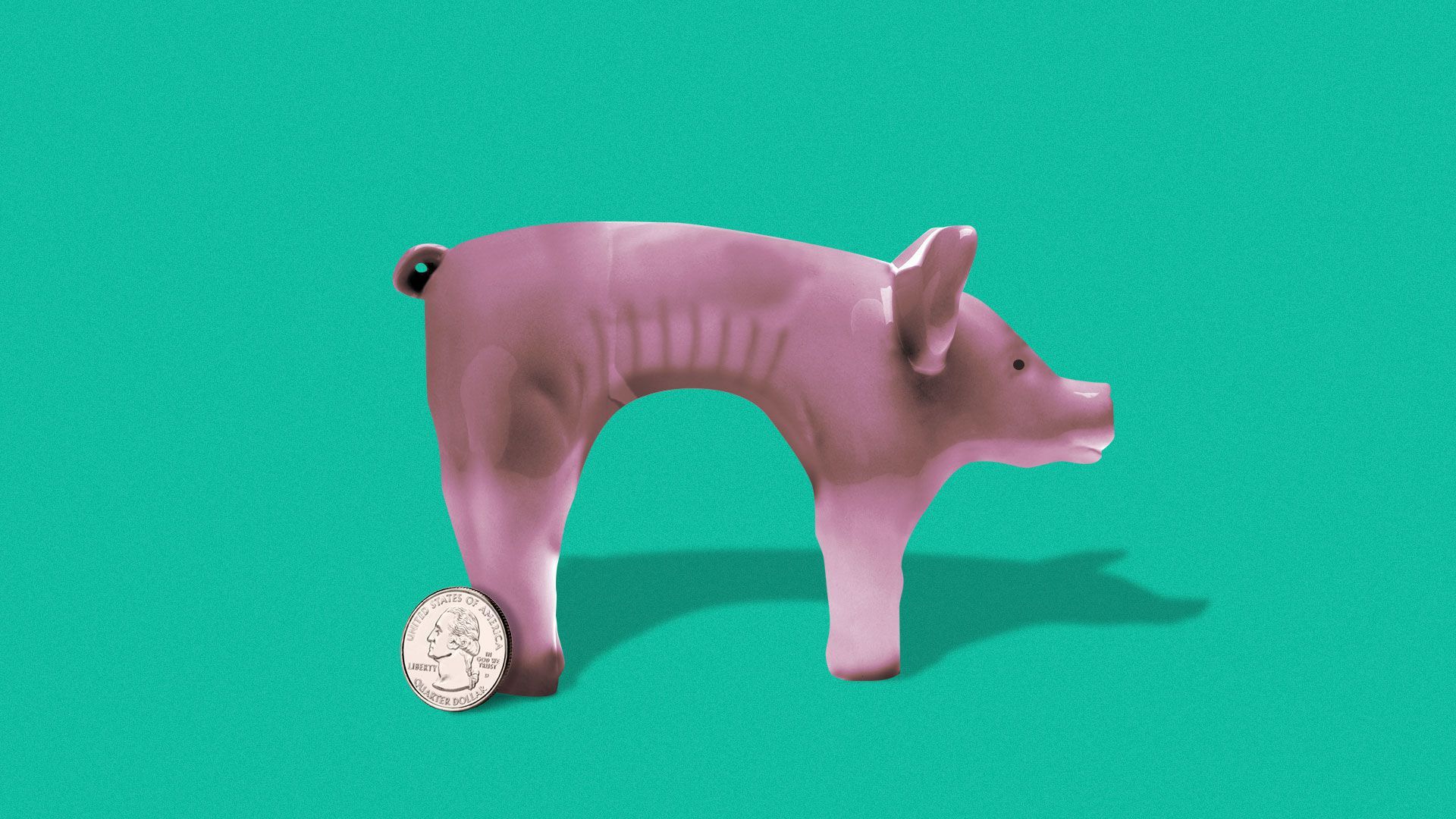Big banks trade profits for coronavirus insurance
Add Axios as your preferred source to
see more of our stories on Google.

Illustration: Eniola Odetunde/Axios
Earnings from big banks were expectedly awful on Tuesday, but much more important than JPMorgan's 69% profit drop or Wells Fargo's $0.01 earnings per share in the first quarter, were details about their cash holdings.
What we learned: JPMorgan, the largest U.S. bank, added $8.3 billion to its reserves last quarter, more than five times what it held in the same quarter last year, and Wells Fargo set aside $4 billion, an increase of $3.1 billion.
Why it matters: The holdings suggest the banks are doing more than preparing for “the likelihood of a fairly severe recession” as JPMorgan CEO Jamie Dimon put it.
- "[T]he banks’ maneuvers to steel themselves for losses reflect their calculations that the $2 trillion economic relief bill, which includes direct payments to low-earning Americans as well as $349 billion in forgivable loans to small businesses, will not be enough to stave off widespread financial instability for everyday Americans and their employers," my former colleague Emily Flitter writes for The New York Times.
Be smart: The banks are quite literally exchanging their profits for the cash to ride out the pandemic and protect against losses on loans to customers, Flitter adds.
- "JPMorgan’s net income fell to $2.9 billion from $8.5 billion for the last quarter of 2019 and $9.2 billion for the same period a year earlier — with the bank’s new reserves essentially the difference. Wells Fargo reported a steep drop in profit to $653 million from $5.9 billion during the same period in 2019."
The intrigue: Many of the bank's high-income customers appear to be taking similar action. Deposits rose 23% at JPMorgan during the quarter and grew in every line of business. Wells Fargo saw deposits rise by 4% to $1.4 trillion.
Go deeper: Banks' first-quarter profits are expected to get rough
